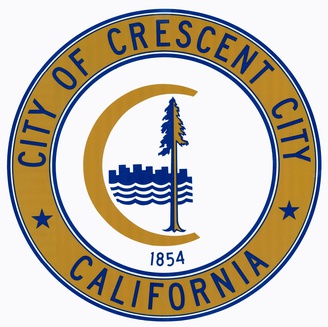Jessica Cejnar Andrews / Wednesday, Nov. 23, 2022 @ 11:56 a.m. / Homelessness, Infrastructure, Local Government
Crescent City Council Will Use State Housing Funds For Loans to Affordable Housing Developers

Previously:
###
Crescent City plans to create a loan program to further the development of affordable housing, using its entire $485,092 Permanent Local Housing Allocation from the state.
The city proposes to distribute its PLHA allocation to affordable housing developers as a 10-year loan that earns 0 percent interest, Economic Developer and Grant Coordinator Bridget Lacey said. After 10 years, if affordable housing requirements are met, the city can choose to forgive that loan, she said.
Those PLHA dollars are expected to be enough to develop affordable housing units for a minimum of two families earning 60 percent or less than the Area Median Income, Lacey told Councilors
City Manager Eric Wier said he hopes the loans will provide an incentive to developers to build bigger affordable housing projects. However, the city must spend its 2019 apportionment — about $80,848 — by April 30, 2024, according to Wier.
"It is doable," he said. "We have had some projects that could meet those terms, so we're hopeful it does do just that. It moves the needle to make these projects become a reality for us."
The loan program is part of a five-year plan the California Department of Housing and Economic Development requires for communities to receive their PLHA apportionment.
The state’s Permanent Local Housing Allocation program was created through the 2017 Building Homes and Jobs Act, also known as State Senate Bill 2. The legislation established a $75 recording fee on real estate documents in an attempt to increase the state’s affordable housing supply. The PLHA aims to provide a permanent funding source to help cities and counties meet affordable housing needs for its residents.
Though PLHA dollars aren’t competitive, cities still need to apply for that funding and have a five-year plan for using that allocation, Lacey said.
To receive its 2019 allocation, Crescent City and other applicants for PLHA dollars, must submit a finished Housing Element to HCD by Feb. 28. Crescent City just began a 30-day public comment period on its 6th Cycle Housing Element last week.
The document will be presented to the City Council on Dec. 5 and the Planning Commission on Dec. 8 before final submittal to HCD.
If Crescent City can't meet that Feb. 28 deadline, it would need to update its PLHA plan to exclude those 2019 dollars, Lacey said. But it sounds the state is willing to be flexible, she said.
“There are multiple entities that are in the same situation as us and HCD is aware of that,” Lacey told Councilors on Monday. “And they’re aware of the deadline in place, so they’ll do their best to expedite the process.”
For its proposed loan program, if a project can't be completed by April 30, 2024, the city may have to return its 2019 apportionment to the state or use them for another project, Lacey said.
"If the city cannot recoup funds from the property or developer, then the city will have to pay the state back," she said. "The city will need to be strategic in choosing a project that can be fully secured during the underwriting process and completed by the deadline.”
The city must submit its PLHA application packet by Nov. 30, Lacey said. She said she’d like the Council to consider sending out a request for proposals to potential developers in January to “get a jump on a timeline” and funds will be awarded to developers in April.
The goal is for city officials to know whether it has a solid project or not by April since the funds must be spent by April 30, 2024, Lacey said.
“If there’s not a project that shows great promise, then the city will amend the PLHA plan to offer another eligible use for the 2019 funds,” she said. “That would allow us about a year to find another activity to (use) those dollars for.”
The PLHA grant is expected to close out in 2030, though the city will have to monitor projects until 2079, Lacey said.
In its 6th Cycle Housing Element, Crescent City is planning for at least 189 living units between 2022 and 2030. Though City Councilors approved the proposed 10-year loan program for housing developers, at their Nov. 7 meeting, they indicated making things easier for property owners to establish accessory dwelling units was also a priority.
CLICK TO MANAGE